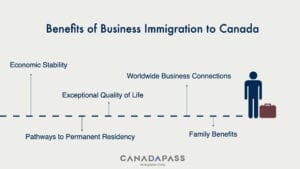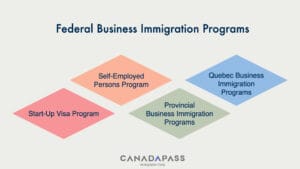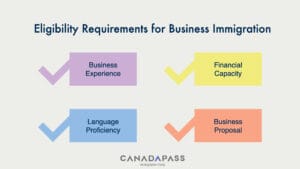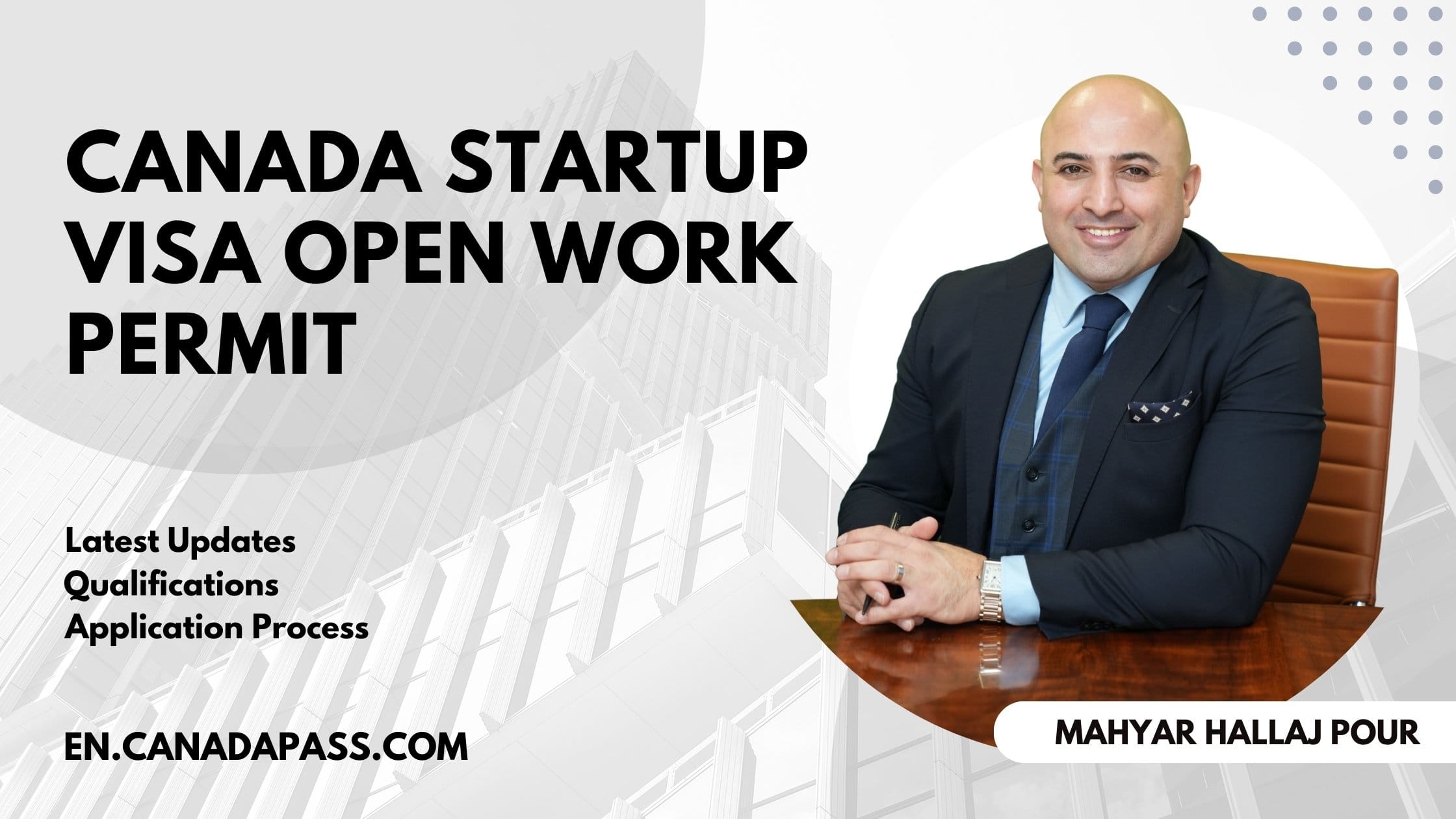Canada provides several immigration programs tailored to business owners, including the Start-up Visa Program, Provincial Nominee Programs (PNPs), and the Self-Employed Program, each with unique requirements and benefits. Whether you’re planning to invest, start a new business, or scale an existing one, Canada presents numerous opportunities for business immigrants to succeed and thrive.
Business Immigration to Canada offers entrepreneurs and investors a pathway to establish or expand their businesses while gaining permanent residency. Canada’s favorable business environment, access to global markets, and high quality of life make it an attractive destination for those looking to grow their ventures.
Why Choose Canada for Business Immigration?
- Enjoy access to one of the world’s strongest and most stable economies
- Benefit from business-friendly policies and strong support for innovation.
- Secure a clear pathway to permanent residency and citizenship.
- Experience a high quality of life, including free public healthcare and education for your family.
- Explore abundant opportunities in thriving sectors such as technology, renewable energy, and agriculture.
According to the most recent data from Statistics Canada, as of the first quarter of 2024, there were just over one million private-sector businesses in Canada, with approximately 23.7% majority-owned by immigrants.
In other words, nearly one in four businesses in Canada’s private sector is owned by immigrants, reflecting the country’s openness and capacity for economic growth and stability. Canada’s appeal for business-minded individuals extends far beyond the numbers.
Understanding Business Immigration to Canada
These programs are available at both the federal and provincial levels, offering multiple pathways for settlement in the country. The main goal is to invite foreign nationals with financial resources, business experience, or innovative ideas to contribute to Canada’s economy and generate employment opportunities.
Key Categories:
- Entrepreneurs interested in starting or managing a business.
- Investors who are prepared to make financial contributions.
Benefits of Business Immigration to Canada
- Economic Stability: Run your business in a stable and thriving economy.
- Pathways to Permanent Residency: Accelerated routes to permanent residency for you and your family.
- Exceptional Quality of Life: Access to free public healthcare, excellent education, and strong public safety.
- Worldwide Business Connections: Establish a presence in international trade markets.
- Family Benefits: Your spouse and children can work and study in Canada.

Federal Business Immigration Programs
Canada provides various federal business programs aimed at attracting business-minded immigrants, including:
Start-Up Visa Program
- Created for entrepreneurs with innovative business ideas that have the potential to compete in global markets.
- Applicants must secure support from one of Canada’s designated organizations, which include: angel investor, venture capital fund, or business incubator.
- While no minimum investment is required, you must demonstrate that your business is scalable and has growth potential.
Self-Employed Persons Program
The IRCC (Immigration, Refugees and Citizenship Canada) has stopped accepting applications for this program on April 30, 2024 until January 2027.
Provincial Business Immigration Programs
Canada’s provinces and territories each operate their own business immigration streams under the Provincial Nominee Program (PNP), aimed at attracting experienced entrepreneurs and investors who can contribute to regional economic development.These programs usually lead to provincial nomination, which can support a permanent residence application.
Examples of Popular Programs:
- British Columbia Provincial Nominee Program (BC PNP):
- Minimum investment: CAD $200,000.
- Create at least one full-time job for a Canadian citizen or PR.
- Manitoba Business Investor Stream:
- Entrepreneur Pathway: CAD $250,000 investment required in urban areas; lower for rural.
- Quebec Business Immigration Programs:
- Quebec Immigrant Investor Program offers a passive investment model, requiring CAD $1.2M.
Quebec Business Immigration Programs
- Quebec Immigrant Investor Program: For high-net-worth individuals willing to make a passive investment and meet residency and French language requirements.
- Quebec Entrepreneur Program: For entrepreneurs who plan to actively manage a business in Quebec and meet minimum investment and ownership criteria.
- Quebec Self-Employed Worker Program: For professionals with relevant experience aiming to establish themselves as self-employed workers in Quebec.

Eligibility Requirements for Business Immigration
- Business Experience: experience in owning, managing, or operating a business, often supported by verifiable documentation.
- Language Proficiency: Proficiency in English or French is usually required, with most programs asking for a Canadian Language Benchmark (CLB) level between 4 and 7, depending on the province and program.
- Financial Capacity: Applicants must possess sufficient personal net worth and be able to make the required business investment. The exact amounts vary by program and location.
- Business Proposal: A comprehensive and viable business proposal that aligns with the economic development goals of the target province or community is typically required.

Step-by-Step Guide to Business Immigration
- Select the Right Program: Assess your goals, industry, and budget to choose between federal or provincial options.
- Prepare Documentation: Gather financial, business, and personal records required for your application.
- Develop a Business Plan: Create a proposal aligned with immigration criteria and provincial economic priorities.
- Submit Your Application: Include all necessary forms, supporting documents, translations, and fees.
- Receive Nomination or Approval: Secure a provincial nomination or federal endorsement, depending on the program.
- Relocate and Launch Your Business: Move to Canada and implement your proposed investment or business operations.
Processing times vary by program and typically range from 6 months to 2 years.
Industries in Demand for Business Immigration
- Technology (AI, Blockchain, SaaS)
- Agriculture (Farming, AgriTech solutions)
- Clean Energy (Solar, wind, hydropower)
- Healthcare Innovation
- Tourism and Hospitality
Common Challenges and How to Overcome Them
- Language Barriers: Enroll in English or French language courses to meet required benchmarks.
- Application Complexities: Consider hiring an immigration consultant or lawyer for professional guidance.
- Cultural Adjustments: Utilize community support centers upon arrival to ease the integration process.
Final Thoughts
Immigrating to Canada through business programs offers a unique chance to fulfill both your personal aspirations and professional ambitions. Consider consulting an immigration specialist or taking advantage of a free eligibility evaluation to begin your journey.










